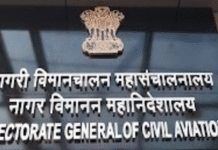Mumbai– The Securities and Exchange Board of India (SEBI) on Friday decided to allow direct access to corporate bond market for Foreign Portfolio Investor (FPI).
The regulator said here it also decided to permit Infrastructure Investment Trusts (InVIT) and Real Estate Investment Trust (REIT) investment in two-level special purpose vehicle (SPV) structure.
In a statement, SEBI said the board at its meeting has decided to allow Category I and Category II FPI the option of direct access to corporate bond market without brokers.
Currently, the SEBI (Foreign Portfolio Investor) Regulations, 2014, allow FPI to transact in securities only through registered stock broker who is a qualified member of a Recognised Stock Exchange (RSE).
The SEBI also decided to allow FPIs access to Over-the-Counter (OTC), Request for Quote (RFQ) and Electronic Book Provider (EBP) platforms of RSE only for proprietary trading so as to deepen the corporate bond market.
“Proposal for amendment to Rule 8 (4) of Securities Contracts (Regulation) Rules, 1957, will be taken up with the Government of India to permit FPIs to become a member of a RSE for the limited purpose of proprietary trading. Necessary amendments to the SEBI (Foreign Portfolio Investor) Regulations, 2014 shall be made in this regard,” SEBI said.
The markets regulator also decided to amend the InvIT regulations to facilitate its growth to allow investment in two-level SPV structure through holding company (Holdco) subject to sufficient shareholding in Holdco and the underlying SPV.
The other major changes are: (a) An. InvIT to have right to appoint majority directors in the SPV(s); (b). Holdco to distribute 100 per cnet cash flows realised from underlying SPVs and at least 90 per cent of the remaining cash flows; (c) Reducing mandatory sponsor holding in InvIT to 15 per cent (d) Remove the limit on the number of sponsors of InvIT and others.
The amendments to REIT regulations are: (a) Allowing REIT to invest in two-level SPV structure through Holdco, subject to sufficient shareholding in the Holdco and the underlying SPV; (b) An REIT to have right to appoint majority directors in the SPV(s); (c) Holdco to distribute 100 per cent cash flows realised from underlying SPVs and at least 90 per cent of the remaining cash flows; (d) Clarifying the definition of “real estate property” in the regulations, subject to certain conditions.
The other amendments agreed by SEBI are: removal of the limit on number of sponsors and introducing the concept of sponsor group; allowing REITs to invest upto 20 per cent in under construction assets; amending the definition of the valuer and clarifying the definition of “associated” and “related parties” in the regulations.

“Allowing REITs and InvITs to invest in two-level SPV structure through a holding company will remove the need for a restructuring in many cases prior to creation of a REIT/InvIT thereby reducing transaction costs and timelines; this will also ensure liquidity to investors and developers who had invested at the Holdco level,” Maadhav Poddar, Tax Partner-Real Estate Practice, EY said.
According to him, increasing the percentage which an REIT can invest in under construction property from 10 per cent to 20 per cent will allow for more portfolios to be listed which hitherto could not be considered as their under construction portion was greater than 10 per cent.
“Reducing the mandatory sponsor holding in an InvIT from 25 per cent to 15 per cent will allow for more liquidity to sponsors. Apart from the above SEBI has made changes in regulations relating to number of sponsors, requirements for private placement of InvITs, definitions of associates, related parties etc. One will need to wait for the fine print to see the impact of these changes,” Poddar added.







